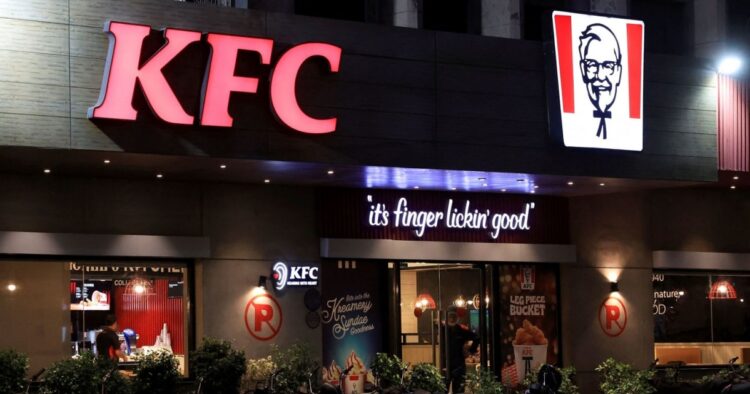In recent weeks, Pakistan has seen an alarming rise in violence, sparked by anti-U.S. sentiments and anger over Israel’s actions in Gaza. Over ten mob attacks have been carried out on U.S. fast-food chain KFC outlets, leading to widespread unrest. The violence has reached major cities, including Karachi, Lahore, and Islamabad, with authorities arresting 178 people connected to these attacks. These incidents have further fueled tensions in the country, which is already dealing with a myriad of social and political challenges.
The attacks on KFC are part of a larger trend of rising anti-American sentiment in Pakistan. These Western brands, particularly KFC, have long been targets of protests, especially in the wake of global events that involve the U.S. and its allies. Protesters, armed with sticks, have vandalized multiple outlets of the fast-food chain, leading to chaos and destruction. One tragic incident that stands out is the fatal shooting of a KFC employee in Lahore, allegedly by unknown gunmen. While the police are investigating the motivation behind the murder, there are concerns that political sentiment may be a factor, though no clear connection has been established yet.
Authorities in Lahore have been working to contain the violence, stepping up security at 27 KFC outlets after several attacks. The city police have arrested several individuals, including a member of the Islamist group Tehreek-e-Labbaik Pakistan (TLP), though the group denies any involvement in organizing the protests. The TLP has urged Muslims to boycott Israeli products but claims that it has not called for any direct action against foreign brands like KFC.
Despite the TLP’s statements, it is clear that these acts of violence are part of a larger problem in Pakistan, an increasing willingness to target Western businesses as symbols of U.S. influence. KFC and other U.S.-based companies like Pizza Hut are often caught in the crossfire of political disputes, even though they are not involved in the conflict. The Pakistani government’s inability to maintain order and curb violence has led to escalating tensions, further destabilizing the country.
In addition to the attacks on KFC, other Western brands have also been affected by boycotts across the Muslim world, particularly in countries like Pakistan. Religious clerics have actively called for the boycott of any products associated with the U.S. or Israel. However, they have urged their followers to avoid violence, asking them to boycott peacefully without resorting to destruction.
The situation in Pakistan highlights a troubling trend of rising extremism and intolerance. Instead of fostering a spirit of peace and dialogue, political and religious groups are increasingly resorting to violence and destruction. The attacks on KFC and other foreign brands are not just acts of protest, they are symptoms of a deeper crisis in Pakistan’s social fabric. As religious and political groups exploit these sentiments for their own agendas, innocent businesses and individuals are left to pay the price.
The international community must take notice of the deteriorating situation in Pakistan. While it is crucial to address the root causes of anti-U.S. sentiment in the region, violence and destruction should never be the answer. The Pakistani government must take stronger actions to prevent such attacks and ensure that peaceful protest is upheld, without allowing them to devolve into chaos. If this pattern continues, Pakistan’s international relations and domestic stability will only continue to suffer.
Pakistan needs to address the core issues of extremism and intolerance in its society, rather than allowing foreign brands to be scapegoated in the midst of political disputes. Until this is done, the cycle of violence is likely to persist, further isolating Pakistan from the global community.

















Comments